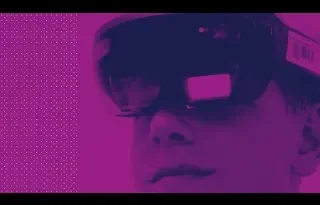BSc in Computing (Common Entry)

Search to find a different course
Course Overview
This course will provide students with a solid grounding in the computing fundamentals in Software Development and Web, Databases, Scripting, System Administration and Networking. Students knowledge and skill in the areas of Data Analysis and in Cloud Computing.
Students will develop their problem solving and critical thinking capabilities, communication and collaboration skills. Such skills are key to success in the tech sector, where both individual drive and team engagement are required.
After the successful completion of first year, students typically progress to the Software Development stream - where the focus will be on Programming and Web Development. Students will have repeated exposure to programming principles and practices of web development using various technologies. On completion of the course they will be capable of integrating a range of techniques and technologies to create and deploy a quality web application working both independently and as part of a multidisciplinary team.
Subject to sufficient numbers, a Networking & System Administration Stream, may be offered. This stream will focus on developing knowledge and professional expertise in the analysis, design, development, implementation, deployment, maintenance, management and administration of computer networks and computer systems. In addition, a graduate from this stream will be proficient in services using both virtualisation and cloud platforms.
Students who complete this three-year programme may opt to enter industry or continue onto a 1 year Level 8 add-on course.
What makes this course different
No prior programming experience is required for this course. Year 1 is focussed on building strong foundations across core areas of Computing.
You are interested in deepening your knowledge in an industry-ready way in Software Development (programming) or Networking.
75% of grads from this course are in employment or further study after 6 months of graduating.
Understanding the Industry
Computing is embedded in every aspect of our lives, from entertainment, work, health, and business. The industry is a rapidly evolving field that encompasses various aspects of technology and innovation. It involves the study, development, and application of computer systems and software, ranging from programming languages to artificial intelligence. The industry plays a critical role in shaping the modern world, with advancements in areas such as cybersecurity, data analytics, cloud computing, and machine learning.
Career Opportunities
Future Careers:
Future careers from the Software Stream, may include:
- Software Engineer
- Application Developer
- Software Tester
- Web Developer
- Cloud Computing Developer
- Technical Consultant
Pathways from the Networking and Systems Stream, may include:
- Technical Consultant
- IT Support Technician
- Network Technician
- Data Centre Technician
- Network Engineer
- System administrator
Course Delivery and Modules
Student-centred learning is at the heart of all activities in this course. Most class-contact hours take place in computer labs (programming and hardware/networking labs). Other classes include tutorials and lectures. Online learning is of huge importance in supplementing work in class, with most learning resources being hosted on Moodle (DkIT's content-management system). Peer-learning, groupwork and discussion are of vital importance in helping our students to communicate effectively, both in speech and in writing.
- Communication Skills
- Computer Hardware
- Introduction to System Administration
- Introduction to Web Development
- Mathematics for Computing
- Programming Principles
- Dynamic Web Development
- Introduction to Databases
- Introduction to Networking
- Introduction to Scripting
- Data Analysis for Computing
- Algorithms
- Database Development
- Object-Oriented Programming
- Software Testing
- Web Application Development
- Data Structures
- Database Management
- Introduction to Software Engineering
- Security for Software Developers
- Data Communications
- Internetworking
- Operating Systems & Virtualisation
- Programming for System Administration and Networking
- Technical Documentation
- Directory Services
- IPv6
- WAN Protocols
- Wireless Technologies
- Cloud Foundations
- Cloud Technologies
- Database Administration
- Software Project Management
- Web Frameworks
- Web Patterns
- Web Services
- Ethics and Professional Issues
- Networking Programming
- Software Project
- Advanced Networking
- Network Design
- Project (year-long)
- Service Desk Support
- Advanced System Administration
- Applied Security
- Broadband Technologies
- Network Management
Education Progression
On completion of the BSc. in Computing, graduates may be eligible to progress onto an Add-On level-8 programme at DkIT.
BSc (Hons) In Computing in Cloud Computing
Fees and Funding
Please find information on fees and funding here: www.dkit.ie/fees
Entry requirements
Standard entry requirements apply. There are no special entry requirements for this course.
- Standard Requirements for Leaving Certificate Applicants
- Standard Requirements for UK/NI Applicants
- Standard Requirements for QQI-Further Education Applicants
- Mature Applicants: Minimum of 23 years of age on January 1st of year of application
Recent CAO points
How to apply
Apply on CAO
All standard entry first-year applicants must apply for entry through the CAO. See Important application dates for CAO and information for specific applicant types below:
Advanced Entry & Transfer Applications
Advanced Entry is for applicants who have previous educational achievements and/or work experience and want to be considered for direct entry into year 2, 3, or 4 of a course. This includes students looking to transfer to DkIT from another Higher Education provider.
International Application (non-EU)
International Applicants (not from or living in the EU) can apply through an agent or directly to DkIT to study this course.
Ask us a Question
If you have a question about the BSc in Computing (Common Entry) please ask it below and we will get back to you.
Disclaimer: All module titles are subject to change and for indicative purposes only. All courses are delivered subject to demand and timetables are subject to change. Elective Module options will only run subject to student numbers. The relevant Department will determine the viability of each elective module option proceeding depending on the number of students who choose that option. Students will be offered alternative elective modules on their programme should their preferred elective option not be proceeding. Award Options for Common Entry Programmes: The relevant Department will determine the viability of each award option proceeding depending on the number of students who choose either option. If the numbers for one of the Award options exceed available places, students for this option will be selected based on Academic Merit (highest grades).
